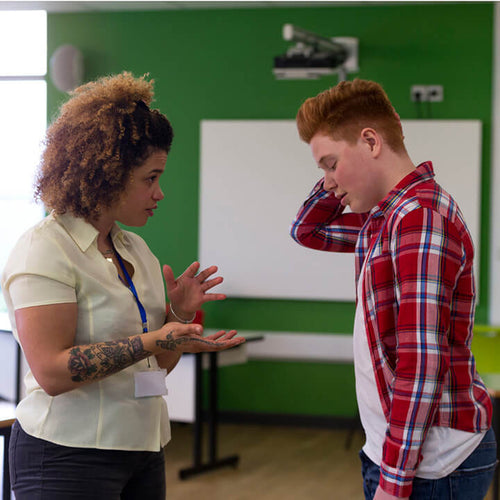After each school year begins, the issue of bullying eventually comes up, and this year will be no different. Bullying comes in many forms and can be defined as unwanted aggressive behavior and an observed or perceived power imbalance. It usually involves repetitive behaviors or the high likelihood of repetitive behaviors.
Bullying hurts. It hurts our kids, and we hurt for them. We want it to stop right now. We wish we could rid the world of such hateful behavior. What’s a realistic solution? Is it to spend the lion’s share of our time and energy trying to create a completely bullying-free world? Might our time and other resources create a bigger impact if applied to help kids develop the skills and emotional strength required to cope with bullying?
The Love and Logic Approach
What would happen if more young people knew how to peacefully strip bullies of their unhealthy power? How do we move in this direction when our kids, who we know and love, get bullied?
Love and Logic teaches the following for adults who want to help kids when they are being bullied:
- Listen to the bullied child with sincere empathy
- Get the child’s perspective on solutions
- Resist the urge to own the bullying
- Ask permission to share some solutions with the child
- Share some sensible experiments with the child, if the child allows
Who Does Bullying Affect?
Bullying affects not only the person who is being bullied—it also affects those who bully and those who witness bullying. Kids who are bullied are more likely to experience depression, anxiety, health complaints, and decreased academic achievement. Those who bully are more likely to abuse alcohol and drugs, get into fights and have criminal convictions as adults. Witnesses to bullying are more likely to increase tobacco, alcohol, and drugs; experience increased mental health problems; and miss or skip school.
Kids who are Strong Enough to Handle a Tough World
It all comes down to recognizing that we cannot create a stress-free and conflict-free world for our children. No matter how much we protect them, they will eventually face a world full of difficult, even dangerous, people—a world where rescue is not always possible. Helping them at an early age to develop the skills and emotional strength necessary to handle bullying will
Thanks for reading!














